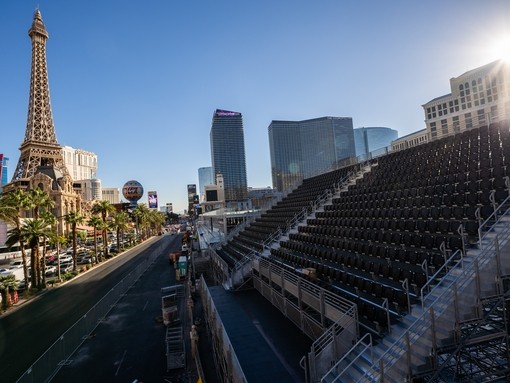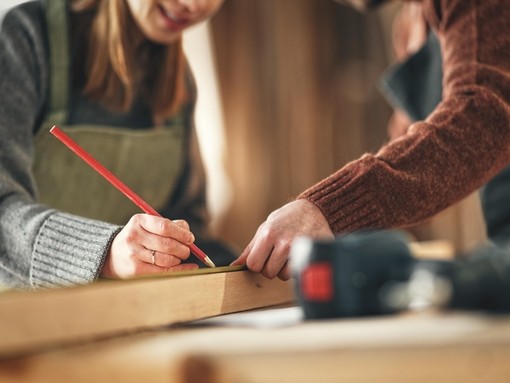
How to become a… welder
Contents
Contents
With large amounts of investment in infrastructure and a variety of major projects currently underway, there are fantastic welding jobs where you can gain valuable welding experience in the UK construction industry.

Read below to find out more about the skills and experience you’ll need and to discover whether a welder career is the right fit for you.
RATES
£16-35k dependent on experience
HOT SPOTS
Hinkley Point C / HS2
QUALIFICATIONS
ABC, City & Guilds, BTEC, NVQ
What do welding jobs involve?
Welders can work in a range of different industries and on a variety of projects. You could be working on large-scale projects such as commercial buildings or bridge structures or on smaller, more intricate work such as individual components in a production line or repair work.
Welding jobs revolve around cutting, shaping and joining separate pieces of metal, alloys and composite materials like plastics together. You’ll utilise several different welding and joining processes to get the job done, including arc, TIG and MIG welding.
You’ll need to read and interpret engineering instructions and engineers drawings, then follow these to cut materials into the necessary shapes and then weld them together. You’ll need to utilise precision measuring equipment to inspect and test all cuts and joints, ensuring a high degree of accuracy.
What is a welder’s salary?
A welder’s salary can vary, depending on the location, scale and nature of the project you’re working on, as well as from one employer to the next. Starting out, you can expect to receive a salary of between £16,000 and £19,000 per year, with this rising to between £20,000 and £30,000 as you gain more experience and progress in your career as a skilled welder.
The most experienced welders – those in senior or specialist positions at the peak of their career – can often earn up to £35,000 per year. Self-employed welders can set their own rates, meaning your annual salary may vary.
These figures are intended as a guideline only and actual salary figures may vary.
What skills do I need?
As a welder, you’ll need an excellent eye for detail and the ability to understand and follow complex technical engineering plans. Due to the nature of the work, good levels of hand-eye coordination and manual dexterity are essential, as well as general physical fitness.
In terms of previous experience, Maths and arithmetic skills are also important to enable you to work out measurements and angles, and ensure wasted materials are minimised.
You’ll need knowledge of various welding techniques and health and safety procedures, and be confident working both on your own and as part of a wider team.
What qualifications do I need?
There are a number of welder qualifications, one of the most common routes into a welding career is through an apprenticeship. This gives you the opportunity to earn practical experience and learn the skills needed for your career, all while being paid. To gain entry to an apprenticeship scheme, you’ll usually need at least 4 GCSEs at grade C or higher, including Maths, English and Science. After completing an apprenticeship, you could then apply for a role as a trainee welder to gain further experience.
Alternatively, you could choose to gain a specific welding qualification, such as the ABC Certificate in Fabrication and Welding Practice, City & Guilds Certificate in Welding and the BTEC National Diploma in Manufacturing Engineering (Welding and Fabrication).
Once you are working, there are a number of NVQs you can study to further your training, including:
Fabrication and Welding Engineering – levels 2 and 3
Performing Engineering Operations – levels 1 and 2
Fabrication and Welding – level 3
You’ll need a Construction Skills Certification Scheme (CSCS) card if you’re going to be working on a building site.
What are the hours and conditions?
In a full-time role, you can expect to work between 35 and 50 hours per week, Monday to Friday. However, shift work is also common and you may be expected to work overtime on evenings and weekends, as and when the project requires it.
The conditions you work in can vary depending on the industry or project you’re working on, but you can expect it to be hot, noisy and dirty. You may have to work in cramped spaces, or outside in all weather conditions. Protective equipment, such as gloves, face-shields, helmets and boots are essential, with some roles also requiring safety harnesses.
Career progression
With enough experience and additional training, there are a number of different routes for progression in welding jobs, providing you with fantastic opportunity for development. If you’re willing to put in the time and effort you could advance to become a foreman, supervisor or workshop manager. You could also move into testing, inspection or quality control.
Areas of specialism
Talented welders are in high demand across multiple sectors, and because most welding skills are transferable, you have a lot of options when it comes to specialising in a specific area – from civil engineering and construction to shipbuilding and vehicle manufacturing.
To search for opportunities across the sector click here. Or, browse our dedicated HS2 and Hinkley Point C pages for more information.















